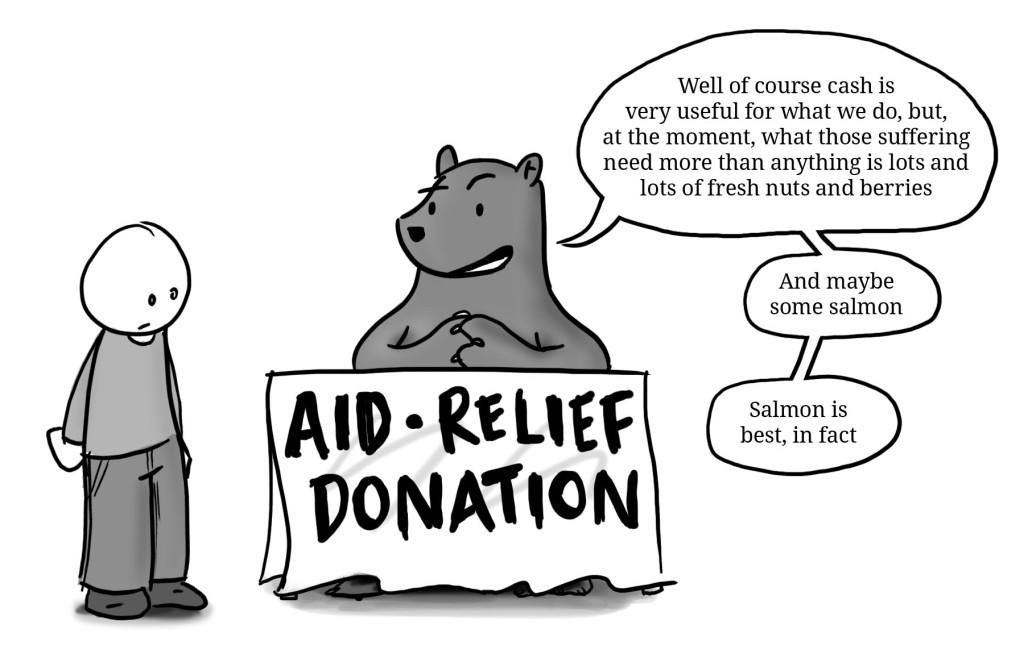While the world is rushing to the aid of Japan during the earthquake and tsunami aftermath, the Red Cross has become one of the largest organizations for relief donations.
The American Red Cross has so far collected close to $34 million for the crisis in Japan.
Despite the Red Cross collecting such a large amount of money, the organization’s reputation has always been shaky, as displayed in the aftermath of Haiti.
The organization spent only $254 million of its overall $430 million dollars in donation money received leaving most inhabitants living in “tent communities.”
In a video by Fred Sajous, founder of the watchdog group Kontrol Aid, published in the Miami Herald, Haitian community leaders were recorded saying they had not received anything from the Red Cross.
The American Red Cross CEO Gail J. McGovern stated that donation funds are to be allocated but that not all of them should be spent at once; the spending should be incremented over a three to five year period.
Reasons for the delay ranged from saving the funds for the sake of conservative spending to creating future disaster prevention funds.
Then again, explanations without solid facts begin to sound like excuses.
Throughout its history, the Red Cross has been criticized for numerous scandals, including reports that the Red Cross claimed to be in debt while it was attempting to put some of its $1 billion in donations on reserve.
In Canada, the Red Cross chapter has been prevented from comtrolling the blood supply after it plead guilty to knowingly distributing HIV and Hepatitis C contaminated blood supplies to patrons.
In Singapore, the chapter was put on hold after an internal audit by the Commissioner of Charities discovered misappropriation of $68,900 in donations.
The victims of the 1989 San Francisco earthquake received $10 million of the $50 million raised, with similar cases occurring with Red Cross fundraising after the Oklahoma City bombing in 1995 and the San Diego fire in 2001.
The Red Cross has received complaints for its sluggish distribution of funds.
At the end of the day, it needs to be held accountable for its use of donations, or lack thereof.
Furthermore, the people who fail to use their powers of critical thought and donate only to the largest organizations with the fanciest advertisements need to take responsibility as well.
Even though the Red Cross advertises with three-minute ads on television and Internet that plead for you to open your checkbook, other organizations exist that seek to help in times of crisis.
With a history of largely unresolved complaints, donors should ask themselves: is the Red Cross any more reliable than the possible alternatives?
During the Haiti earthquake, Cuban and Venezuelan medical professionals helped tend the most to people’s needs; 7-11 retailers was notable as distributing food and supplies in Japan during the 1995 Great Hanshin earthquake.
Givewell.org is a website that reviews and recommends charities for people to donate.
They obtain information about charities by reviewing the organization’s website, contacting the organization directly and conducting applications for direct grants, according to its website.
For Japan disaster relief, they recommend Doctors without Borders, an emergency medical care charity which helps millions of people caught in crises in nearly 60 countries, according to the Doctors without Borders website.
Numerous international, national and local relief organizations are worth considering beyond their initial image.
ADRA, All Hands, UNICEF and AMURT, to name a few, all provide competent disaster relief.
Obviously, the largest organizations may have the largest amount of flaws, and people who donate to charities should take the responsibility to research how and where their money is being spent.





































































